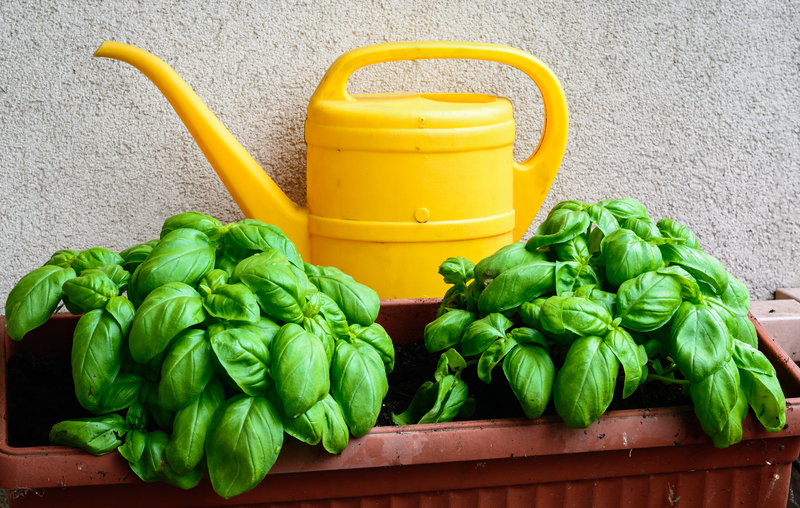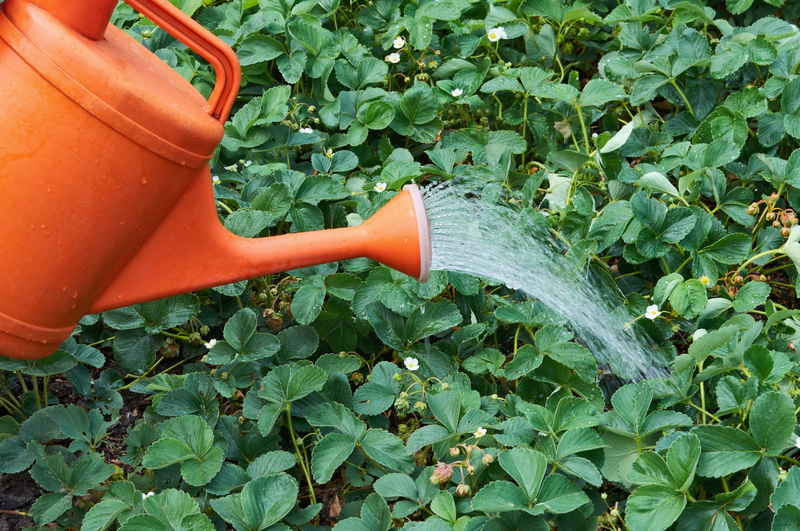A Green Thumb's Guide: 9 Fundamental Tips for Starters
Posted on 08/06/2025
A Green Thumb's Guide: 9 Fundamental Tips for Starters
Do you dream of lush greenery, colorful blooms, and a flourishing garden but don't know where to begin? Planting your first seeds can be daunting, but gardening is a rewarding journey that can enrich your life in countless ways. Whether you're growing herbs on your kitchen windowsill or planning a vibrant backyard oasis, this guide will set you on the path to nurturing thriving plants. Discover the essential green thumb tips for beginners in our comprehensive list below!
1. Understand Your Local Climate
The cornerstone of successful gardening is knowing your local climate and planting zone. Plants thrive in specific temperatures, rainfall patterns, and sunlight levels, so take time to research the best choices for your region. Visit local nurseries, join garden clubs, or consult online gardening forums dedicated to your area. Here's why this step matters:
- Climate-appropriate plants are easier to care for and more likely to survive.
- Understanding frost dates helps you avoid damage to your seedlings.
- Rainfall patterns influence watering needs and plant selection.
How to Determine Your Planting Zone:
- Use reliable online zone finders, such as the USDA Hardiness Zone Map.
- Check local gardening resources and extension offices.

2. Start Small and Simple
Beginner gardeners often get excited and try to plant too much too soon. Starting with a small garden is less overwhelming and enables you to focus on learning foundational skills. Consider a few easy-care plants like basil, marigolds, or lettuce, which offer quick results and are forgiving of minor mistakes.
Benefits of a Modest Start:
- Reduces the risk of burnout or frustration.
- Makes maintenance and observation manageable.
- Allows for incremental expansion as your skills grow.
3. Select the Right Location
Location is critical for every novice gardener. Plants have different needs regarding sunlight, shade, and space. Observe your yard or balcony throughout the day to identify how much sunlight each area receives. Most vegetables, herbs, and flowers require at least 6-8 hours of direct sunlight daily.
Tips For Good Site Selection:
- Choose a spot that's easy to visit daily to check for water, pests, and growth.
- Consider accessibility for watering and harvesting.
- Ensure good drainage--avoid areas where water collects after rain.
4. Enrich Your Soil
The secret to flourishing plants lies beneath your feet. Healthy, nutrient-rich soil is a gardener's best ally. Before planting, test your soil's pH and nutrient levels with a home kit or by contacting your county extension service. Amend as needed with compost, organic matter, or other soil conditioners to create a fertile environment for your chosen plants.
Key Soil Improvement Strategies:
- Mix in well-rotted compost or manure to boost nutrients and microbial life.
- Mulch around plants to conserve moisture and suppress weeds.
- Rotate crops each year to prevent soil depletion and disease buildup.
5. Choose Low-Maintenance Plants
For your first garden, select hardy, beginner-friendly plants that can handle some neglect and variability in care. Opt for perennials or annuals that are naturally pest-resistant and require little fussing. Some of the best choices for new gardeners:
- Herbs like oregano, mint, and chives
- Vegetables such as radishes, lettuce, and green beans
- Flowers like zinnias, sunflowers, and cosmos
- Native plants that thrive in your region with minimal extra input
Why Low-Maintenance Matters:
- They are resilient to inconsistent watering and beginner mistakes.
- Quick results boost your confidence and interest in gardening.
- Easy to propagate, allowing your garden to grow without much extra effort.
6. Master Proper Watering Techniques
One of the fundamental gardening tips for starters is to understand the art of watering. Both overwatering and underwatering can harm plants. Learn the specific needs of each plant species and consider natural rainfall as part of your schedule.
Essential Watering Tips:
- Water in the early morning or late evening to minimize evaporation.
- Direct water to the base of the plant, not the leaves, to reduce disease risk.
- Use soaker hoses or drip irrigation to provide steady, deep moisture.
- Stick your finger into the soil: If it's dry 1-2 inches down, it's time to water!
7. Learn About Mulching
Mulch is indispensable in successful gardens. It suppresses weeds, moderates soil temperature, retains moisture, and adds organic matter as it decomposes. For first-time gardeners, mulching also means less time spent weeding and watering!
Types of Mulch for Beginners:
- Organic options: straw, shredded bark, wood chips, grass clippings, or compost
- Inorganic options: pebbles, landscape fabric (less beneficial for soil health)
Tip: Apply mulch 2-3 inches thick, keeping it clear of direct stem contact to avoid rot.
8. Stay on Top of Weeding and Pests
Even in the best gardens, weeds and pests are inevitable. Regular observation and early action are crucial to prevent large infestations. Cultivate the habit of walking through your garden daily. Look under leaves and in the soil for signs of bugs, mold, or out-of-place plants.
Organic Pest and Weed Control Methods:
- Hand-pull weeds when the soil is damp for easier removal.
- Plant companions like marigolds or basil to deter certain pests naturally.
- Introduce beneficial insects such as ladybugs or lacewings for natural pest control.
- Use organic sprays like neem oil, insecticidal soap, or homemade garlic/chili solutions sparingly.
9. Keep a Gardening Journal
Few things will help you develop your beginner gardening skills faster than keeping detailed records. A garden journal is invaluable for tracking what you planted, when you fertilized, which varieties thrived, and which struggled. As you build your experience, you'll appreciate these notes and insights, making each season more successful than the last.
What to Log in Your Gardening Journal:
- Planting and harvest dates
- Weather events and watering frequency
- Pest problems and solutions tried
- Growth patterns, yields, and personal notes

Bonus: Embrace Patience and Enjoy the Journey
Gardening is as much about personal growth as it is about plants. Mistakes will happen, but they're opportunities to learn and refine your green thumb. Celebrate every sprout and bloom, and take pride in nurturing life from soil and seed. The process is as rewarding as the results!
Conclusion: Cultivate Your Green Thumb with Confidence
Becoming skilled at gardening doesn't happen overnight, but with these nine essential beginner gardening tips, new gardeners can avoid common pitfalls and set the stage for a lifetime of gardening success. Remember to research your local climate, start small, choose hardy plants, and build healthy soil. Master essential tasks like watering, mulching, and pest control, and keep careful notes as you go. With patience, observation, and regular care, you'll soon find your green thumb--and your own thriving patch of paradise.
Ready to dig in? Let these gardening fundamentals guide your first steps and enjoy the unique joy that only growing your own plants can bring!
Additional Resources
Latest Posts
Three Foolproof Tips for Successful Weed Management
Tools Every Green Thumb Must Possess
Eco-Friendly Urban Living with Vertical Gardens

